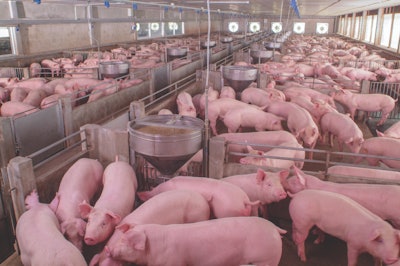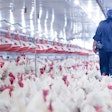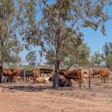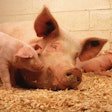
In petition to the court, groups argue that California’s Proposition 12 violates the Commerce Clause and will raise prices on pork without any improvement to food safety or animal welfare
The American Farm Bureau Federation (AFBF) and National Pork Producers Council (NPPC) have petitioned the U.S. Supreme Court to take their case against California’s Proposition 12 animal confinement initiative.
Proposition 12, which was approved by voters in 2018, establishes minimum space requirements based on square feet for breeding pigs, veal calves and egg-laying hens and, beginning January 1, 2022, would ban the sale of meat and eggs from those animals when they are raised in a way that does not comply with the minimum requirements. According to NPPC and AFBF, Prop 12 prohibits the sale of pork from hogs whose sows were raised anywhere in the world in pens that do not comply with the state’s standards.
“It applies to any uncooked pork sold in the state, whether produced there or outside its borders. Nearly all pork currently produced in the United States fails to meet California’s arbitrary standards,” NPPC and AFBF said in a joint statement. “To continue selling pork to the 40 million consumers who live in California, which represents about 15% of the U.S. pork market, pork producers would need to switch to alternative sow housing systems. Industry estimates for converting sow barns or building new ones to meet the Prop 12 standards are in the billions of dollars, with consumers bearing the ultimate cost through higher pork prices.”
The appeal to the high court comes after the U.S. Court of Appeals for the 9th Circuit in July upheld a lower court ruling against the NPPC-AFBF case. The appeals court found, despite the organizations plausibly alleging that Prop 12 “will have dramatic upstream effects and require pervasive changes to the pork industry nationwide,” 9th Circuit precedent won’t allow the case to continue. That precedent, however, runs counter to numerous Supreme Court decisions and is in conflict with nearly every other federal circuit court, AFBF and NPPC said.
“We’re asking the Supreme Court to consider the constitutionality of one state imposing regulations that reach far outside its borders and stifle interstate and international commerce,” said NPPC President Jen Sorenson. “In this case, arbitrary animal housing standards that lack any scientific, technical or agricultural basis and that will only inflict harm on U.S. hog farmers.”
Generally, the Commerce Clause grants Congress the power to regulate trade among the states and restricts states from regulating commerce outside their borders, except for matters related to public health and safety.
“Supporters of Proposition 12 claimed it would improve animal welfare and food safety. The law fails to address either of those issues,” said AFBF President Zippy Duvall. “Farmers know the best way to care for their animals. This law takes away the flexibility to ensure hogs are raised in a safe environment while driving up the cost of providing food for America’s families. Small family farms well beyond California’s borders will be hit hardest as they are forced to make expensive and unnecessary changes to their operations. This will lead to more consolidation in the pork industry and higher prices at the grocery store, meaning every family in America will ultimately pay the price for Prop 12.”
The California Department of Food and Agriculture, which is still writing the implementing regulations for Prop 12, admitted the initiative will have no effect on food safety and actually will increase the mortality rate for sows subject to it.
“Proposition 12 makes it a criminal and civil violation to sell pork in California unless the pig it comes from was born to a sow — an adult female — that was housed with 24 square feet of space and in conditions that allow the sow to turn around freely without touching her enclosure. Hardly any commercially bred sows in the United States are housed with 24 square feet of space per sow, even those raised in group pens; and farmers almost universally keep sows in individual pens that do not comply with Proposition 12 during the period between weaning and confirmation of pregnancy, for animal health and business reasons,” reads the petition for writ of certiorari to the U.S. Court of Appeals for the 9th Circuit.
As it laid out its legislative priorities this year, NPPC said Prop 12 was among them, and Sorenson cited a financial analysis that found that “Prop 12-related compliance costs will lead to the loss of small hog farms and further consolidation of our industry.”















